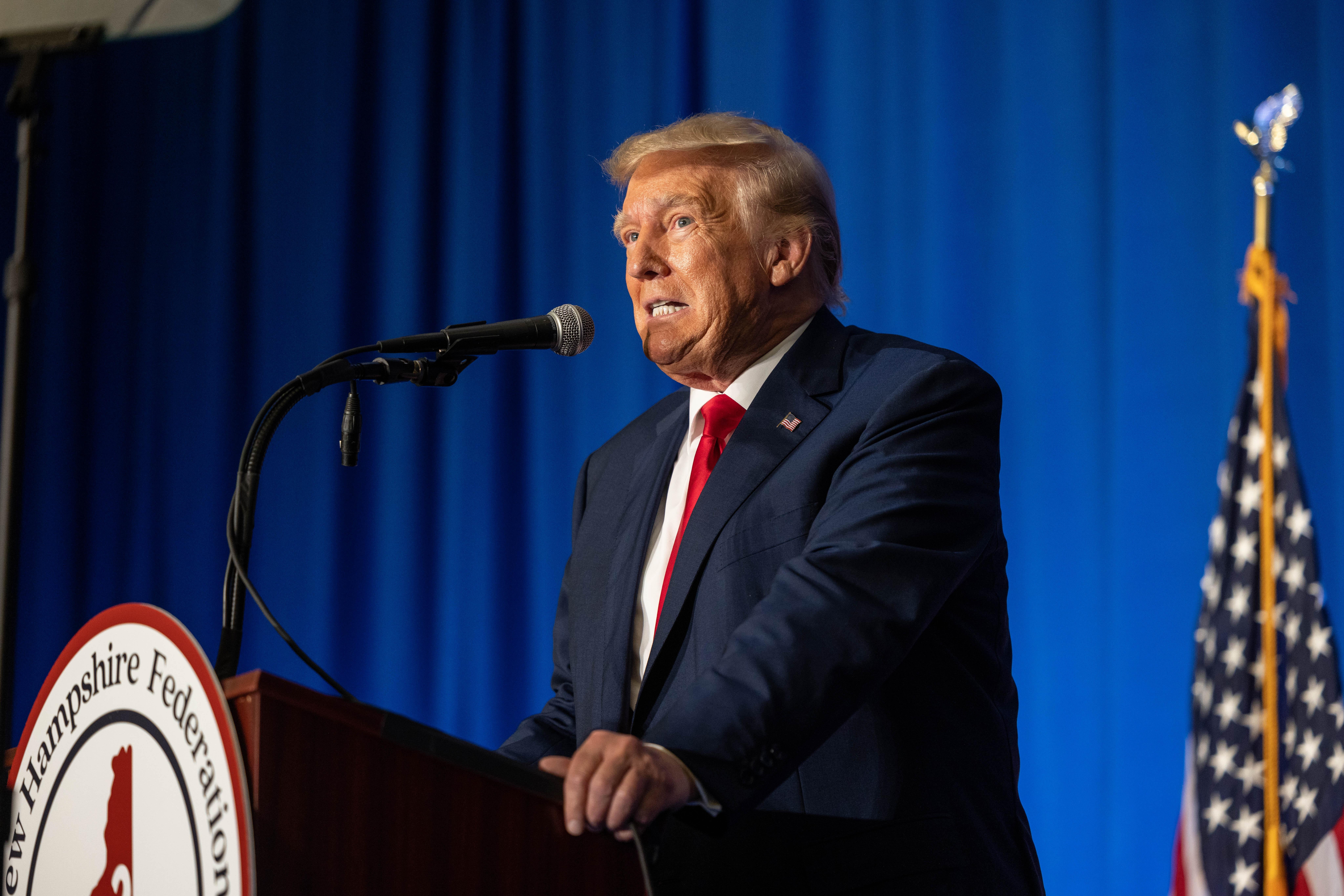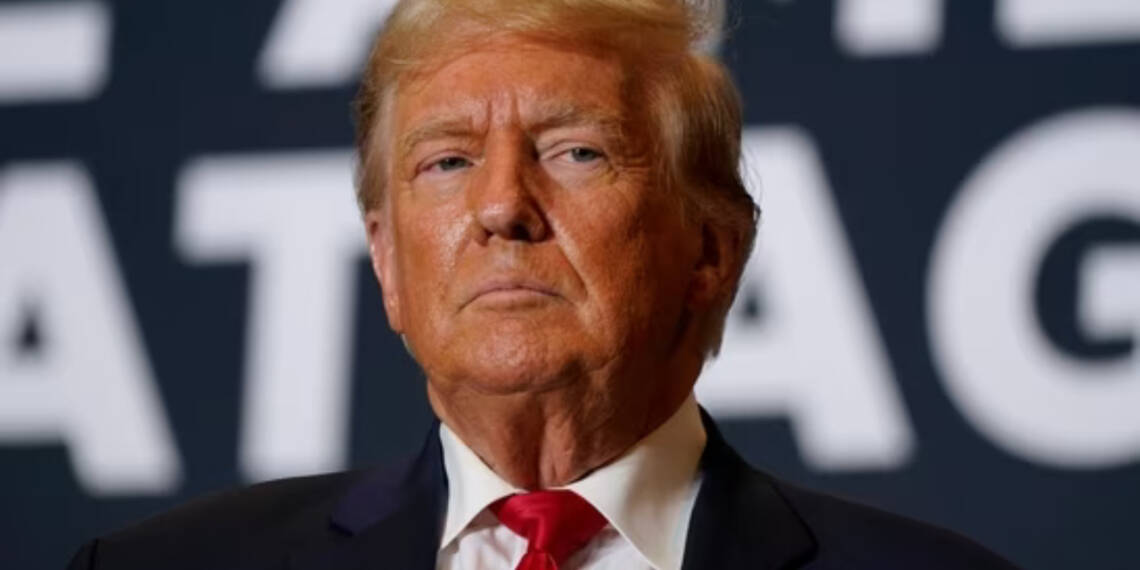On January 6, 2021, Trump supporters assembled in Washington, D.C., near the White House for a rally in support of then-President Donald Trump. Fueled by concerns of election integrity, they marched to the Capitol as Congress convened to certify the Electoral College results of the 2020 presidential election. The events unfolded into a tumultuous breach of the Capitol, with some supporters expressing frustration over what they perceived as a rigged election and a need to voice their discord.
In recent developments, Maine has joined Colorado in asserting that Donald Trump is unfit for presidential candidacy due to his involvement in inciting the January 6, 2021, Capitol riot, deeming it an act of “engaged insurrection”. This approach of utilizing courts to block Trump’s potential run for office has been underway in various states for months, recognizing the pivotal role of states in overseeing their elections within the federal system of the United States.
Join us on Telegram: https://t.me/tfiglobal
Despite attempts in multiple states and a lower court in Colorado, such challenges have faced setbacks. Charles P. Pierce, the general tenor of the Colorado from Esquire notes the apparent desperation among Colorado Supreme Court justices to find a legal basis for disqualifying Trump from the ballot, displaying a sense of yearning for an alternative.

The legal foundation for these efforts lies in Section 3 of the 14th Amendment to the U.S. Constitution. Enacted in 1868 during the post-Civil War period known as ‘reconstruction,’ the primary intent of the 14th Amendment was to grant citizenship to former slaves, ensuring equal protection under the law. The relevance of Section 3, which bars individuals who have engaged in insurrection from holding office, has been brought to the forefront following the events of January 6, 2021.
The 14th Amendment has played a crucial role in American history, not only by ensuring the rights of former slaves but also by incorporating the Bill of Rights into state law. This constitutional amendment has been instrumental in advancing civil rights, marking a significant shift in American federalism. However, the current focus on Section 3 arises due to the unprecedented events surrounding the Capitol riot and the potential resurgence of Trump as the Republican Party’s presidential candidate.
The language of the 14th Amendment seems straightforward – individuals engaged in insurrection should be barred from holding elected office. However, the legal landscape is complex, and court challenges have encountered varying degrees of success. The specific circumstances surrounding Trump’s case and the interpretation of the law by different courts add layers of complexity to the issue.
While Maine and Colorado have taken a stance against Trump’s candidacy based on his alleged engagement in insurrection, the outcome remains uncertain. The legal process will likely continue to unfold, with debates and interpretations shaping the future implications of Section 3 of the 14th Amendment.
The current legal efforts to prevent Donald Trump’s candidacy based on the 14th Amendment highlight a concerning aspect of the U.S. political landscape. The apparent inability of the law to firmly stand against potential authoritarianism by the democrats serves as a disheartening example of the country lacking effective institutional safeguards.
This issue becomes pronounced when the democrats are exhibiting tendencies that could lead the nation towards a form of dictatorship. The vulnerability lies in the absence of robust mechanisms preventing such a descent within the framework of the two-party system.
Read More: The Return of Donald Trump is Justin Trudeau’s Worst Nightmare
The stark choice between authoritarianism and democracy becomes evident, with the possibility of those in power favoring the former to perpetuate the influence of the wealthy and powerful.
The reliance on the 14th Amendment as a legal recourse to prevent Trump’s return to the presidency is absolutely uncertain. Even if criminal convictions emerge from the numerous charges against him before the November vote, the efficacy of such legal actions in barring his candidacy fruitless.

Analysts, back in August, debated the unprecedented scenario of an imprisoned felon seeking the presidency. The prevailing sentiment suggested uncertainty regarding the outcome. However, this discourse has shifted over time. The prevailing analysis now leans towards an acceptance that a third Trump candidacy is inevitable. Moreover, the prospect of a second presidential term seems plausible, regardless of potential convictions for charges like conspiring to defraud the U.S. government or other state and federal offenses.
This shift in analysis underscores a broader concern – a perceived certainty of Trump’s political resurgence despite legal challenges and criminal accusations. The evolving narrative prompts reflection on the efficacy of existing institutional safeguards and their ability to uphold democratic principles within the U.S. political system. As discussions on Trump’s future persist, the pressing question remains: Can the existing legal framework adequately protect the nation’s democratic foundations in the face of determined political ambitions?
As we approach the upcoming primary elections, it’s noteworthy that, despite the absence of formal voting, Donald Trump is consistently polling at around 60%, showcasing a considerable lead among potential Republican candidates. This robust support sets him apart, with no other contender even coming close in the polls.
In contrast, President Biden’s numbers are less encouraging, averaging below 40%. Interestingly, this figure is even lower than his vice president, Kamala Harris. The disparity in popularity ratings indicates a challenging road ahead for the current administration, particularly when compared to the evident enthusiasm for Trump within the Republican base.
Read More: Donald Trump: The Unconventional Hero, Entrepreneur, and Political Phenomenon
The statistical landscape raises intriguing questions about the trajectory of the upcoming political landscape. While primary elections remain in the future, the numerical trends suggest a strong inclination towards a Trump candidacy. Whether through conventional nomination processes or unconventional routes, the data underscores the significant sway Trump holds among Republican voters.
In a nutshell, though the US is still in the preliminary stages of the political cycle, the polls paint a compelling picture. Trump’s consistent and commanding lead signifies a formidable presence that is likely to shape the political narrative in the coming months. The numbers imply a potential return for Trump, indicating a significant influence on the dynamics of the upcoming elections, regardless of the formalities of the primary process. The Courts are set to lose a lot in this political wrangling. Come what may, the courts will lose because when people decide, it’s pretty much game over for any institution and people, it seems, have decided.
Watch More:








